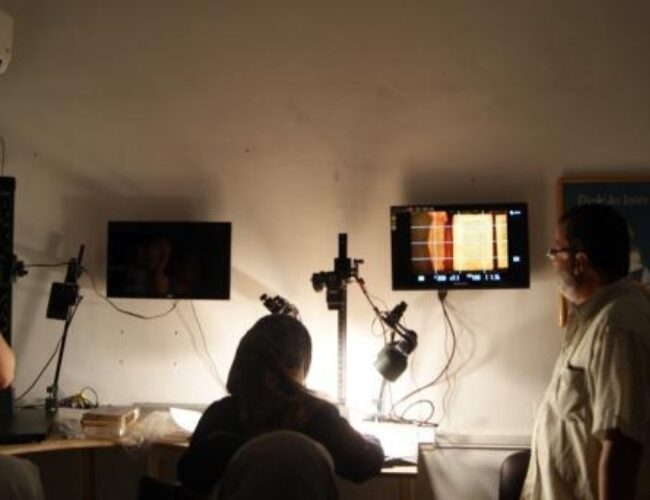The El Basi mosque housed a collection of 200 bound volumes, used by students and scholars since the late 18th century. After the mosque was shut down in the early 20th Century, the El Basi family started curating their collection at home. Today, the collection is again accessible by researchers.

The El Basi mosque, located on the Tunisian island of Djerba, housed the collection of two brothers from Istanbul who, in the 18th century, collected 200 bound volumes covering religion, science and arts. The mosque’s library was used for research and study up to its closure in the early 20th Century. After the closure, the manuscripts were relocated to the El Basi family residence, where they are housed today.
As in most Mediterranean countries, the Tunisian climate is characterised by great humidity and high temperatures, which significantly endanger the manuscripts. Moreover, the risk of fire and accidents is much higher in private collections, as the facilities do not have the same protections as public archives.
The project digitised 171 manuscripts, fragments and family documents, which provide a detailed history of the mosque. Although the primary aim was to digitise the collection, a broader objective was to create interest in digitisation practices on the island of Djerba. There, many important collections are kept in private houses with no conservation efforts. Through seminars, visits and exhibitions, the project created great interest among curators, and a second, wider project digitising seven Arabic libraries on the island started in August 2019.
